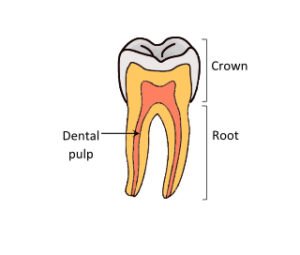Patient Information
WHAT IS ENDODONTICS?

Sometimes the dental pulp becomes injured or infected and needs to be removed so that you can continue to use your tooth without pain or disease. In other cases, an existing root canal treatment you’ve had performed previously can sometimes become re-infected and require re-treatment by a specialist.
An endodontist is a registered dental specialist who has completed three years advanced training in addition to their initial dental degree and is an expert in diagnosing and treating endodontic diseases. Dr Mohan and Dr Fedorova perform hundreds of root canal treatment procedures each year and teach Endodontics to dentists and dental students across Australia.
WHAT DOES ROOT CANAL TREATMENT INVOLVE?
ALL treatment is performed under local anaesthesia to ensure patient comfort. Additionally, all root canal treatment is performed under rubber dam which is a rubber sheet that is fitted over your tooth and keeps it clean and dry while preventing any dental materials entering your mouth. We need to take radiographs (x-ray films) before, during and after all treatments. These are all mandatory requirements for root canal treatment in our practice.
We see patient comfort as a priority and take the utmost care to make you feel at ease from the moment you enter our door. It is important to remember however, that we are treating disease and it is normal to experience some mild post-operative discomfort (inflammation) which is part of your body’s natural healing response. This is typically well managed with mild pain-killers such as paracetamol (Panadol) or ibuprofen (Nurofen).
WILL ENDODONTIC TREATMENT SAVE MY TOOTH?
We will always conduct a full assessment of your tooth and give you an idea of the prognosis before you decide whether to commence endodontic treatment.
Following root canal treatment, it is very important that you see your dentist to restore the tooth with a protective filling or crown. This reduces the chances of your tooth developing decay or cracks later and is a critical part of improving the longevity of your tooth. You should speak to your dentist beforehand to discuss what type of filling is planned and what costs and procedures are involved.
I AM NERVOUS ABOUT HAVING ROOT CANAL TREATMENT, CAN YOU HELP ME?
Dr Mohan, Dr Fedorova and Dr Raguine will always make sure your treatment is comfortable but if you feel apprehensive or anxious about endodontic treatment, please let us know when booking your appointment. Our endodontists regularly utilise relaxation techniques and sedation methods including nitrous oxide, oral sedation or IV sedation (sleep dentistry) and we will gladly discuss all available options to assist you.
